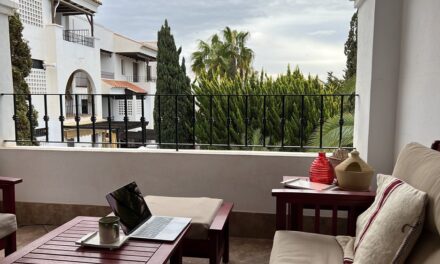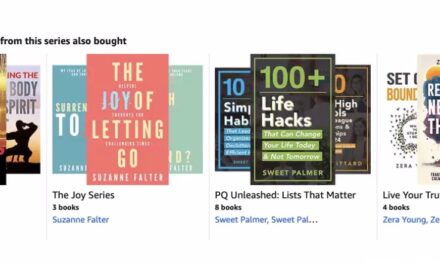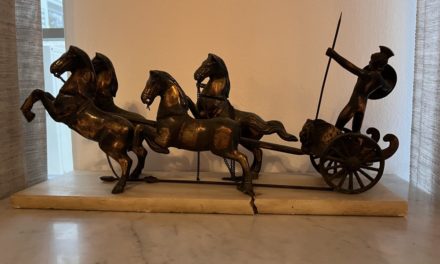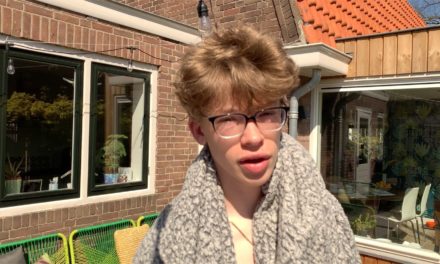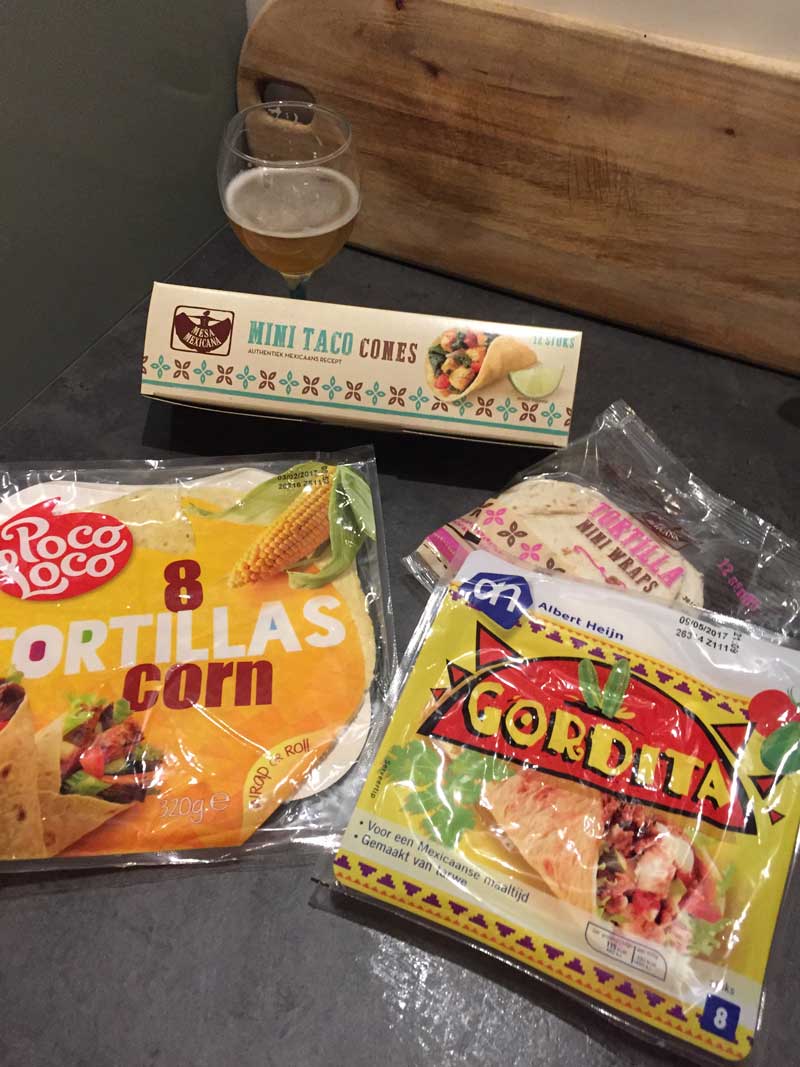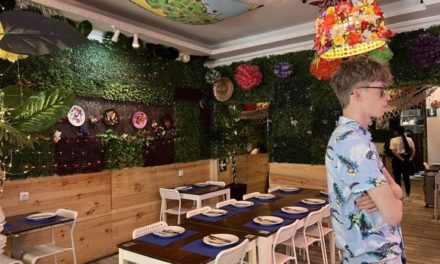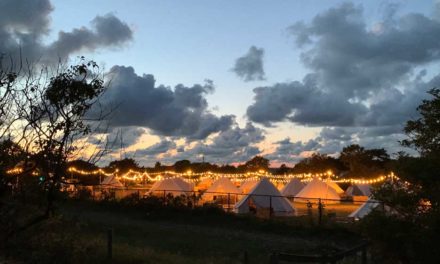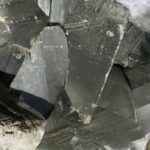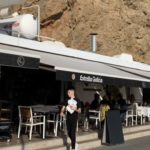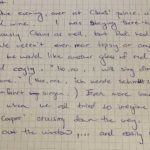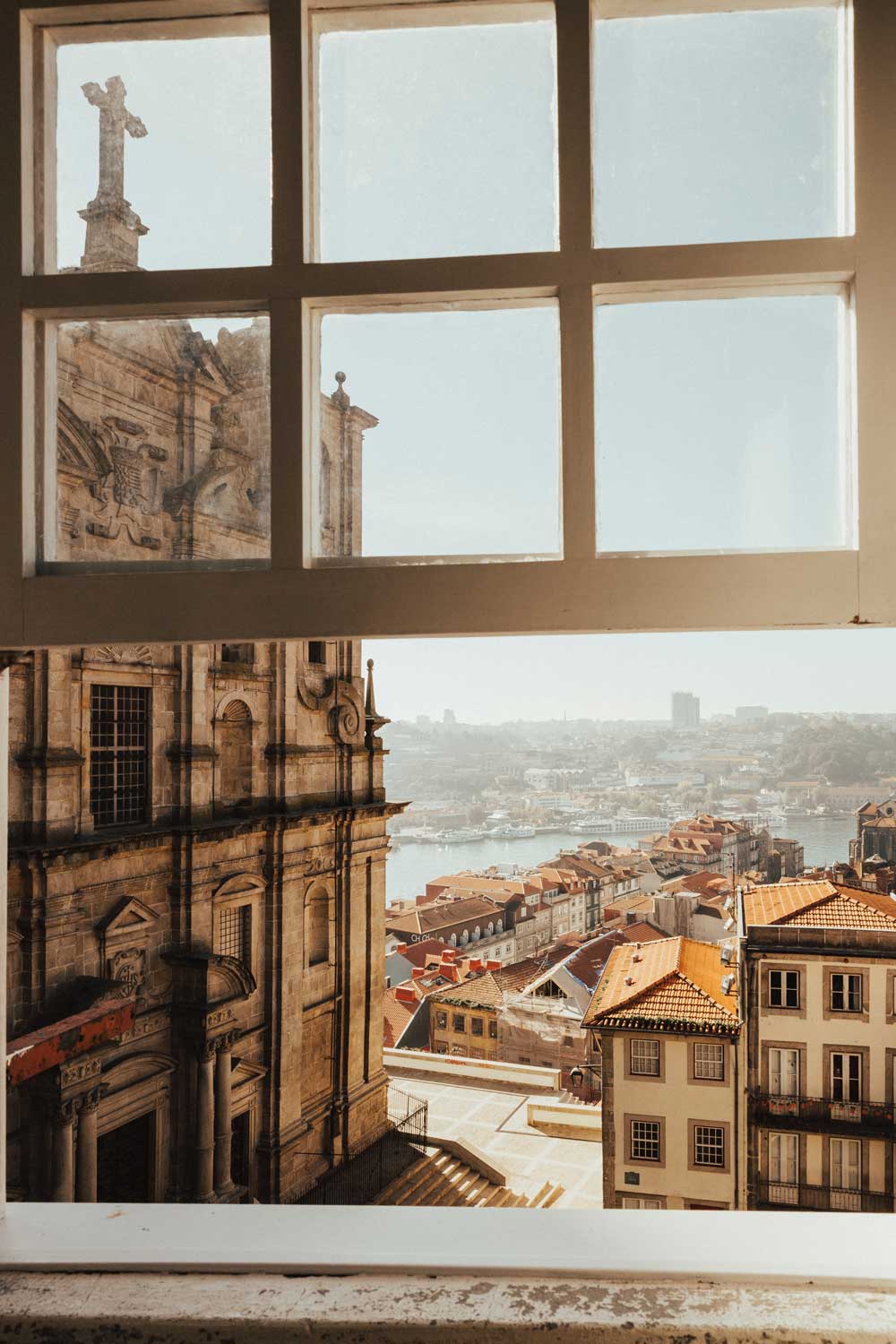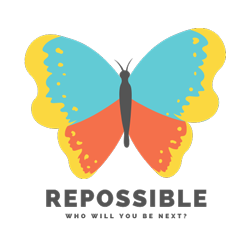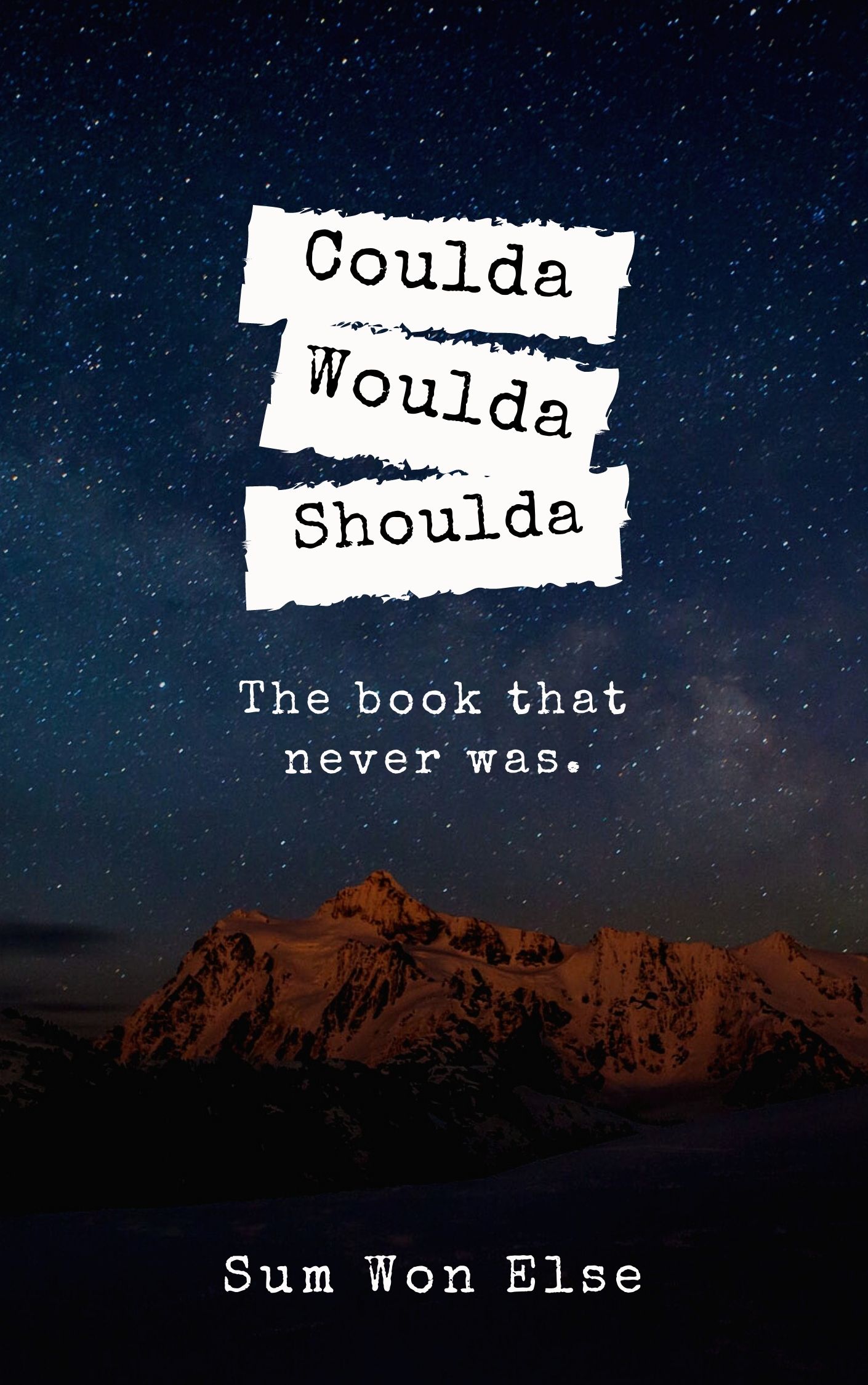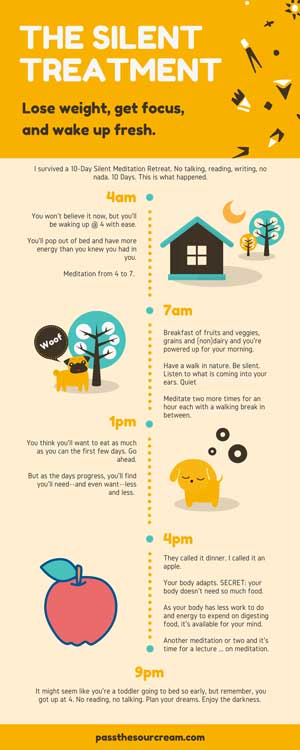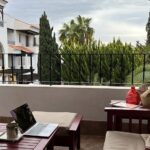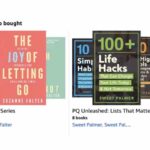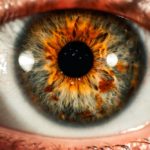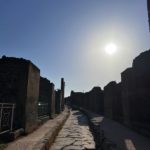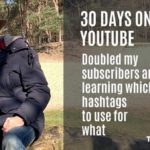
Author Bradley Charbonneau interviewed about his 2018 books. [Porto, Portugal]
![Author Bradley Charbonneau interviewed about his 2018 books. [Porto, Portugal]](https://passthesourcream.com/wp-content/uploads/ptsc-1237b-charbonneau-interview-porto-portugal.jpg)
There’s so much happening in the 2018 Charbonneau writer’s world, we decided to sit down with the author and get the full scoop.
Below is a transcript from the December 28, 2017 audio interview from Portugal’s own Ana Luísa Amarala from the literary weekly news program “Iniciativa do Autor.” The original audio version might be available at some point if they can fish it out of the river. Things got a little out of hand …
Iniciativa do Autor (IdA): Mr. Charbonneau, it’s a pleasure to have you in our town for the holidays and we’re so glad you could make some time for the interview today.
Bradley Charbonneau (BC): Ana, thank you for having me. It’s an honor to speak with you today.
IdA: Would you like a coffee?
BC: Is there port?
IdA: It’s 10:30 in the morning.
BC: But we’re in Porto, Portugal.
IdA: You have a point. I’ll order. [she flags down a waiter and orders]
BC: Excellent. One for you too, of course.
IdA: Of course. So, Mr. Charbonneau.
BC: Bradley, please.
IdA: Bradley. From what I hear, 2018 is going to be a bit of a breakout year for you. Is that accurate?
BC: If I could predict the future, I’d probably live in Monaco or Las Vegas, but yes.
IdA: Please, tell us, how does 2018 unfold?
BC: Ana Luísa, do you ever watch cartoons?
IdA: Cartoons?
BC: Yes. For kids. Like, well, Mickey Mouse or maybe Tintin here in Europe. Animated short films on TV.
IdA: Uh, not really, no. [her Portuguese accent grew a little thicker when she didn’t understand topics]
BC: OK, that’s not going to work. Hey, I’m a writer. I can describe it for you.
IdA: Please do.
BC: There’s one in particular, his name is Road Runner.
IdA: Road Runner?’
BC: Precisely.
IdA: Do go on, I’m sure this is a fascinating glimpse into the mind of an author.
BC: Well, I don’t know if I’d go that far, but it’s how I see it.
IdA: Yes. Road Runner?
BC: Yes, Road Runner is a, well, I don’t know exactly what it is. Some kind of bird. Maybe an ostrich.
IdA: An ostrich? [Two glasses of port arrived. Ana Luísa picked one up and lifted her glass a little more quickly than she meant to, but the whole ostrich and cartoon topic wasn’t her regular interview fare. They clinked glasses.]
BC: Saúde!
IdA: Saúde! Oh, you speak some Portuguese?
BC: Just that word.
IdA: I see.
BC: Road Runner?
IdA: Road Runner.
BC: So he’s an ostrich.
IdA: It’s a male ostrich?
BC: Ooh, good question. I have no idea. I’d have to research that.
IdA: But not now.
BC: Good idea.
IdA: We only have three hours.
BC: For what?
IdA: For the interview. [Ana Luísa raised her glass again and winked at Bradley. He was usually a little slow to pick up on what others were thinking or how well they might be connecting but it hit him that she was toying with him. She had flown right along with the morning aperitif and talk of silly American cartoons from decades previous and then large birds and did that thing that the distinguished literary persona of Mr. Charbonneau never knew what to do with: she winked.]
BC: You just winked at me.
IdA: Wink?
BC: Like this, wink. [He was a terrible winker. He couldn’t really do it well at all without looking like he had a twitch or an itch or a nervous tick.]
IdA: Oh yes, I did.
BC: Why did you do that?
IdA: Oh, Mr. Charbonneau. [She paused to take a sip of her port. Her drink was going down more smoothly than that of her interviewee.] That would be like a magician explaining how the magic works. If I am to wink to you then I can in no way talk about my intentions or methods. You have to just take it for what it is and what you get out of it and if that is nothing then it is nothing. But if somehow it comes over to you as something, then you take that something and you translate into however you take it in.
BC: [He could only nod at this point as too many ideas and thoughts were going through his port-flooded brain. The liquid was like a deep red pearl even though pearls weren’t red and far from liquid, but that’s what was going on: a pearly-red warm drink was covering him like a velour blanket.]
IdA: Please tell me more about the Road Runner.
BC: But you winked at me.
IdA: Have we not moved on from that discussion?
BC: Apparently you have.
IdA: I have. I’m back to ostriches.
BC: But my characters. [The helpless author looked up and to the right and wondered how any of this was happening. It was almost to the point where he might see hidden cameras and a crew recording how poorly he was handling what he thought was going to be a light-hearted interview about his 2018 books.]
IdA: Is one of your characters this Road Runner?
BC: No, one of my characters. [He paused, wondering where the line was between fiction and nonfiction. It usually seemed so clear but the line was blurring. Maybe it was the port. Maybe it was time for more. He drained the last sip and motioned to the waiter for two more and felt extremely local except for the part that he knew one word of the language and wasn’t sure he could find his way back to his AirBnB without Siri.]
IdA: Yes, your characters?
BC: [Ana Luísa was still there, he remembered.] Well, one of them, his name is Charlie Holiday.
IdA: Ooh, his name sounds so intriguing and, well, light and playful.
BC: Oh good. Yes, well, um, you see. [He straightened up in his chair and took a look to see if the waiter was going to bring that second glass of port anytime soon. It had been seconds.] I don’t know quite how to explain what’s happening to him.
IdA: You don’t know how to explain what’s happening to your own character?
BC: [He laughed uncomfortably and realized that he should get his author act in gear.] Well, I do and I don’t.
IdA: I see.
BC: Do you know about Pantsers and Plotters?
IdA: Pantsing and potting? Clothing and gardening?
BC: [He laughed for the first time which brought him back to a state of ease.] That’s good, I like that. But no. A Pantser is a writer who writes by the seat of his pants and a Plotter has a plan or a plot and follows that guide.
IdA: Mesmerizing. Which type of author are you?
BC: I’m a card-carrying Pantser. I have no idea where I’m heading when I sit down to write.
IdA: How enthralling!
BC: Yes, it’s great fun until I don’t know where to go.
IdA: Ooh yes, there’s that.
BC: So I’m a Pantser who’d like to be a bit more of a Plotter.
IdA: Can you be both?
BC: Yes. Well, I think so. I’d like to plot a bit more, at least in larger terms and then pants my way through it while adhering to the general line of the plot.
IdA: Where does the ostrich fit into all of this?
BC: You’re an excellent interviewer, Ana Luísa.
IdA: That’s very kind of you, but why do you say that?
BC: Because you brought us back to where we started. We teased a topic a while ago and you didn’t forget it and now you bring it back and, well, I don’t know if you did it this consciously, but it fits now perfectly in what we were talking about before?
IdA: What were we talking about before? [Her lips formed a sly smile the likes of which were only seen on female mafia hired guns, high-end escorts, and, apparently, Portuguese literary interviewers.]
BC: Touché. [Ida only took another sip of her port that had finally arrived.]
The two of them sipped their port in the late morning on the terrace of the Porto cafe where both of their lives were about to change. They knew both nothing about what was to happen and yet everything at the same time.
IdA: Road Runner?
BC: The ostrich is one of the fastest land animals so in this cartoon when it’s about to go somewhere it builds up all of this momentum and, well, because it’s a cartoon and this is possible, his legs turn into a whirlwind of activity as if it’s winding up to let loose. As if it’s the wheel of a car and the driver has his foot on both the gas and the brake and the wheel is spinning like mad. Smoke everywhere and a screeching howl that you just want to set free.
IdA: And that’s where you are right now? Right here at the end of 2017?
BC: That’s exactly where I am.
IdA: 2018 is going to put that wheel on the ground and let go of the brake. It’s going to let those ostrich legs hit the dirt and rocks are going to fly, dust is going to scatter, and it might just all be a blur if you don’t hold on and fly with it.
BC: It’s like you can see inside of my mind.
IdA: [She didn’t say anything but raised only an eyebrow. Well, that wasn’t the only thing she raised. She raised her glass to his and they again touched glasses and sipped their fine breakfast beverage. Finally, she did speak.] Mr. Charbonneau, how much of your fiction is based in reality. [She paused and thought again.] Or maybe I should ask how much of your nonfiction is based on fiction? Or really the real question is if there is a line and if there is a line between the two is is thin or thick or fuzzy?
BC: I don’t know.
IdA: That was the most honest answer I’ve had in months from anyone I’ve interviewed.
BC: I just thought of an even better answer.
IdA: Do tell.
BC: It doesn’t matter.
IdA: No, it does matter. I want to hear it.
BC: No, that’s my better answer as to whether fiction or nonfiction or where they overlap or mix or where the line is drawn or whether or not they fall into each other. It doesn’t matter. I don’t know. I don’t want to know.
IdA: If they overlap, you have succeeded in your story telling.
BC: Yes.
IdA: If the reader doesn’t realize if they are reading one of your nonfiction or fiction books, that’s OK.
BC: No, that’s great.
IdA: Maybe it’s to the point where you no longer know.
BC: I already no longer know.
IdA: And if you can bring your reader to that point, then you have succeeded.
BC: I want them to ask themselves the question, ‘Is that really possible?’
IdA: But what you really want them to ask themselves the next question, ‘Is that really possible for me?’
BC: You know that part about not knowing where the line is drawn between fiction and nonfiction? Where the line falls between reality and fantasy? Right this very minute I don’t know. Here I am talking to you and I can’t tell if I’m dreaming or awake. You are sitting there, Miss. Ana Luísa Amarala and you are taking answers from my mind before I know it myself. You sit there and wink at me just as the characters in my book do to Charlie Holiday. But you’re real. I’m in Porto. You’re there. I’m here. This is real. [He reached over and pinched her forearm lightly.] We are real. Where is the line? Where does the line fall down among us? Do we know?
IdA: You’re the author. You tell me. What’s it going to be? What’s the difference? What do you want for your readers? What do you want for yourself as an author? What do you want to bring to the readers? Where do you want the line to fall between reality and fantasy? Between the possible and impossible?
BC: Wonder.
IdA: Wonder?
BC: I want them to wonder. To wonder which side of the line they’re on.
IdA: Or if there’s a line at all.
BC: Oh, there’s a line.
IdA: Yes, there’s a line.
BC: But it’s individual. It’s not the same for everyone.
IdA: Is the line what you make it?
BC: The line is what you believe in. Where you choose to believe. Where you choose to live. Where you choose to think, to act, to dream, to live, to thrive, to go, to explore, to discover. Where you choose to play.
IdA: Where do you choose to play Mr. Bradley Charbonneau?
BC: I’m on both sides of the line. Or straddling the line. Or the line is vague, blurry, unseen. But … [He trailed off.]
IdA: But what?
BC: But where you exist on the line, where you choose to live, to believe, to hang out.
IdA: Yes?
BC: It’s a choice. Or at least partly a choice. I can lead my reader to the line, but then it’s up to them as to what they want to do with it. I can’t tell them it’s blurry or where it is. I can show them both sides of the line or my own version of a line, but it’s in their own minds that they make up what happens, where they choose to live. On which sides or just one side or both sides.
IdA: Or they don’t choose sides. They don’t make a line and they are open to the idea that they can straddle the line–if there is a line at all. They can make it their nonfiction or their fiction. They are the authors.
BC: Then what am I?
IdA: You are the messenger.
The rest of the interview was accidentally deleted as Ana Luísa and Bradley made the mistake of trying to edit the file themselves after several glasses of port so early in the day. There was mention of Charlie Holiday and the launch of his own series. Li and Lu are going to make a comeback after a hiatus and there might even be an Every Single Day KIDS in 2018 if Mr. Charbonneau can find kids to interview who think that studying only on Sunday night for an exam on Monday is a bad idea.

